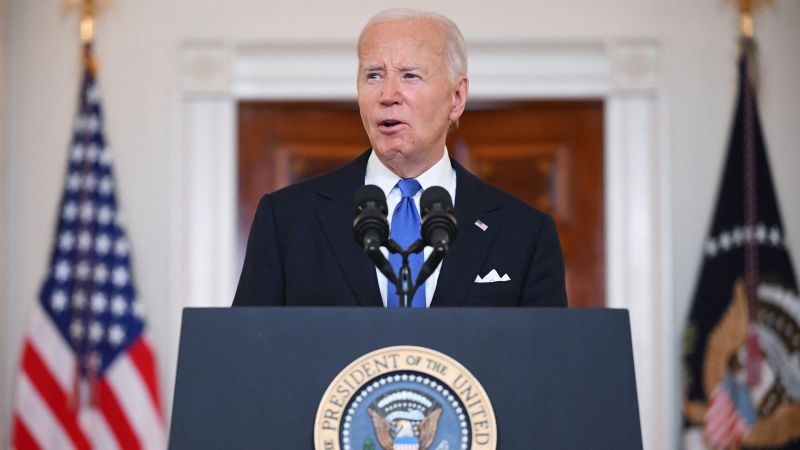CK Asset Holdings (OTCPK:CHKGF) (1113.HK) was supposed to be a go-to name among Hong Kong developers during the tougher times, as the company’s asset-light (or “lighter”, at least) model focused on recurrent revenues and cash flows was supposed to offer more security and flexibility during downturns. And indeed, conditions in Hong Kong remain tough, with housing prices down double-digits in Q1’24 and office vacancies at or near their highest level in 20 years.
Instead of being a safe haven, CK Asset’s management has undermined investor confidence, cutting the dividend by 12% despite what should have been sufficient coverage and then selling units in a new residential development below cost.
These actions, as well as poor sentiment on HK property in general, have contributed to a nearly 30% decline in the value of the ADRs since my last update. While I can make several arguments as to why this share price is too low and CK Asset should be well-placed to recover as interest rates move lower, it could take more time to rebuild investor confidence in management.
Financial Results Weaker, But Not Disastrously So
Going back about four months, the second half 2023 results that CK Asset posted weren’t great, but they weren’t disastrous. The company missed by about 10% at the attributable operating profit line, with 26% year-over-year growth in 2H’23 but 3% half-over-half contraction.
Weaker results from property sales (down 59% / down 17%) weren’t so surprising, but the Pub Operations missed by close to 25% and that was a harder miss to explain for what should be a more sustainable business (results were compromised in part by cost inflation). On the positive side, the hotel and serviced suite business did better than expected (up 252%), as Hong Kong benefitted from improved travel.
Management’s Choices And Communication Undermine Confidence
Ongoing weakness in the Hong Kong property sector has certainly impacted CK Asset, but I believe management’s choices have made a tough situation worse.
Cutting the dividend by 12% was a big and unexpected blow. Free cash flow from recurrent business activity (that is, not property development/sales) should have been sufficient to cover the dividend, leading to valid questions about whether the shift toward a model more focused on recurrent cash flow streams is really as valuable as previously thought. Moreover, management’s commentary didn’t really help, with a comment that basically suggested that the buybacks done in 2023 (close to HK$ 2B) make up the difference – while that is a valid point, they hadn’t previously framed buybacks and dividends in an “either/or” context.
Roughly a month later, the company further eroded investor confidence by launching its Blue Coast residential project at prices below construction cost. With prices around HK$ 22K- HK$ 23K per square foot against an estimated cost of around HK$ 27K – HK$ 28K, CK Asset will be taking a loss here even if subsequent sales are at better prices. Management talked about wanting to stoke buyer interest, and indeed the first round of sales was heavily oversubscribed (I think there were 65 or 66 bids for every unit), but here again management could have tipped off investors ahead of time that they would be engaging in promotional activity to help drum up interest. As is, the company sold units at a loss, and at prices around 20% below surrounding properties, without much of an explanation as to the strategy behind the move.
Management has also been pretty quiet about their intentions with respect to their land bank. With property values in HK lower now, and with a clean balance sheet that can support more leverage, this would seem to be a good time to start selectively acquiring land with an eye toward future development. Indeed, management has talked about “looking to opportunistically” add to the land bank. Had management provided context around the dividend cut such that they were preserving/building capital to be more active on the acquisition side, I think investors would have responded a little more positively.
As it is, though, CK Asset’s management seems to be signaling some clear negatives – the recurrent cash flows from the non-development businesses don’t offer the hoped-for security, demand may be even softer than the 13% decline in Q1’24 HK housing prices suggests, conditions aren’t likely to turn quickly, and there’s further room for property/land values to fall.
Conditions Are Indeed Challenging
As far as the basic operating conditions in Hong Kong go, there’s not a lot of great news now. Higher mortgage rates have made an already-challenging housing market even tougher, driving a 13% decline in housing prices (the ninth straight quarter of yoy declines) and leading to the highest level of unsold units in 20 years. This comes despite the HK government cancelling basically all demand-side management measures back in February (basically, various government rules and requirements meant to cool/control housing).
Retail sales are likewise showing strain for consumers. While tourist arrivals were up 20% in May (good for CK Asset’s hotel properties), retail sales fell almost 12% and that makes three straight declines, as well as a 6% year-over-year decline for the year to date. Weaker consumer confidence (driven in part by well-publicized weakness in housing prices) can’t be helping, but retail sales are also taking a hit from increased online shopping as well as lower spending from tourists from mainland China (they’re still travelling to HK, as seen in the tourist arrivals, but they’re spending less).
Last and not least, there’s nothing much to celebrate in the office sector. While rents did pick up some in the first quarter relative to the year-ago period (about 5% to 6% for the Central district), the bounce in rents seen in 2023 seems to be fading, as rents declined about 4% from the fourth quarter of 2023 and vacancies are near 17% (14% in the Central district) – the highest level in around 20 years.
This latter point is not a positive one for CK Asset, as it looks to lease up Cheung Kong Center II. CKC I still had 20%-plus vacancies near the end of 2023 (I haven’t been able to find a more recent number), and with a still-weak market, CK Asset may have to make some deals to get the building leased up.
The Outlook
I do expect the weakness in Hong Kong to persist a while longer, and I expect it will drive a nearly 20% year-over-year decline in attributable profits for FY’24 (I’m a little below the Street here). I do expect a rebound starting in FY’25 (as rates should be lower by then, driving a recovery), but my FY’25 number is also a little below the Street. Long term, I expect around 5% growth in core earnings; that number is somewhat inflated by the lower starting point of FY’23 core earnings, and if I average the earnings of FY’20-FY’22, the growth rate falls to around 3% which I believe is more representative of the real “core” growth.
Discounting those earnings back leads me to a fair value of HK$41.70, or almost 40% above today’s price. I also note that the shares are trading around a quarter of book value versus a long-term historical average of around a 20% discount to book value.
The Bottom Line
Management has done a lot over a relatively short period of time to lose my trust. Maybe I’m overreacting to the dividend cut and the below-cost residential property sales; while I don’t think any particular decision CK Asset’s management has made is terrible in isolation, I think the way they have communicated their strategy and expectations has left a lot to be desired.
I do think these shares are too cheap now, but I also think there could be further negative revisions to earnings, as the arrow still seems to be pointing down for HK’s retail, residential, and office sectors. Perhaps the market is already pricing this in, and we’re near a bottom, but I’d prefer to be a little more cautious now, given my concerns about CK Asset’s main market and how management is thinking about its business and strategic priorities today.
Editor’s Note: This article discusses one or more securities that do not trade on a major U.S. exchange. Please be aware of the risks associated with these stocks.
Read the full article here






